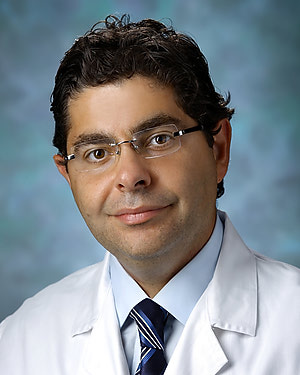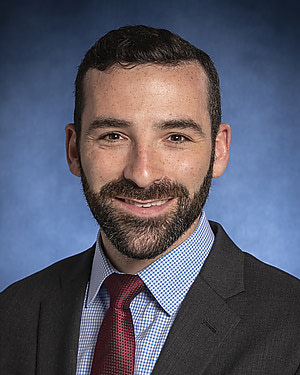Neurosurgical Spine Research and Education Programs
Neurosurgical Spine Education Programs
Neurosurgical Spine Center trainees have the opportunity to work alongside Johns Hopkins’ renowned team of neurosurgeons, participate in complex procedures and learn advanced surgical techniques.
-
Instructorship Program
A one-year instructorship program for neurosurgeons.
-
Enfolded Fellowship
A two-year fellowship program for neurosurgery residents.
Neurosurgical Spine Research Labs
Our researchers leverage the vast resources of Johns Hopkins Medical Institutions’ basic science and clinical research centers to identify new therapeutic options for a variety of spinal diseases.
HEPIUS Innovation Lab
Led by Drs. Nicholas Theodore and Amir Manbachi, the HEPIUS team unites neurosurgeons, biomedical engineers, scientists, radiologists and other physicians to treat and diagnose spinal cord injuries
Spinal Column Surgical Outcomes Lab
The Spinal Column Surgical Outcomes Laboratory aims to improve the neurological outcomes and functional capacity of patients undergoing spinal surgery. We collect large-scale retrospective patient databases and prospective patient registries to report high-quality data relating to the outcomes of neurosurgical operations. The laboratory participates in the National neurosurgical Quality and Outcomes Database (N2QOD). This multi-institutional collaboration has set forth a 3-year prospective study to benchmark quality and surgical outcome measures across several academic institutions. The Spinal Column Surgical Outcomes Laboratory specializes in biostatistical analysis of large-scale clinical databases, studying the outcomes of traditional and novel spinal procedures, quality control and cost-effectiveness research and clinical trials relating to spinal surgery outcomes.
Spinal Oncology Lab
The bony skeleton is one of the most common sites of metastatic spread of cancer and a significant source of morbidity in cancer patients, causing pain and pathological fracture, impaired ambulatory ability and poorer quality of life.<br />
<br />
In our continuous investigation of the mechanism of metastasis in spine tumors and of developing animal models and treatments, our team seeks to understand how cancer cells metastasize to the bony spine.<br />
<br />
Our laboratory develops novel techniques to evaluate our animal models of metastatic spine disease.
The Spinal Fusion Laboratory
Five to 35 percent of spine fusionprocedures fail, even when using the gold standard treatment of grafting bone from the patient's own iliac crest. Fusion failure, otherwise known as pseudoarthrosis, is a major cause of failed back surgery syndrome (FBSS) and results in significant pain and disability, increasing the need for additional procedures and driving up health care costs. The ultimate goal of the Spinal Fusion Laboratory is to eliminate pseudoarthrosis by using animal models to study various strategies for improving spinal fusion outcomes, including delivery of various growth factors and biological agents; stem cell therapies and tissue engineering approaches.




